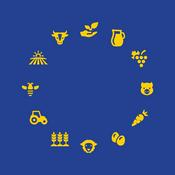Im Februar 2022 machte die Invasion der Ukraine durch Russland plötzlich die Abhängigkeit der europäischen Landwirtschaft von russischen Stickstoffdüngern deutlich, die aus fossilem Methan hergestellt werden.
Um diese Abhängigkeit zu verringern, findet eine vorteilhafte Lösung in der Landwirtschaft zunehmend Beachtung: die Methanisierung. Bei diesem Verfahren werden organische Abfälle aus der Landwirtschaft recycelt, indem sie vergoren werden, um Gase – Biomethan und CO2 – sowie einen natürlichen und erneuerbaren Dünger namens Gärrest zu gewinnen.
Die 66.Folge des Podcasts „Nahrung für Europa“ stellt Ihnen Thomas Karle vor, einen deutschen Getreidebauern, der sich seit 25 Jahren für die Methanisierung begeistert. Sophie Bourgeteau-Sadet, Lehrerin und Forscherin in Frankreich, spricht über die Auswirkungen von Gärresten auf die Bodenbiologie. Lucile Sever, politische Beraterin der Europäischen Biogasvereinigung, spricht über die Hindernisse für die Entwicklung der Methanisierung und über Lösungen, die eine Wende herbeiführen könnten.
Schließlich gibt Herwig Ranner, Leiter des Teams „Klimawandel” in der Generaldirektion Landwirtschaft und ländliche Entwicklung der Europäischen Kommission, einen Überblick über die Produktion von Biogas und Gärresten und erläutert die Ziele der Europäischen Union in diesem Bereich.



